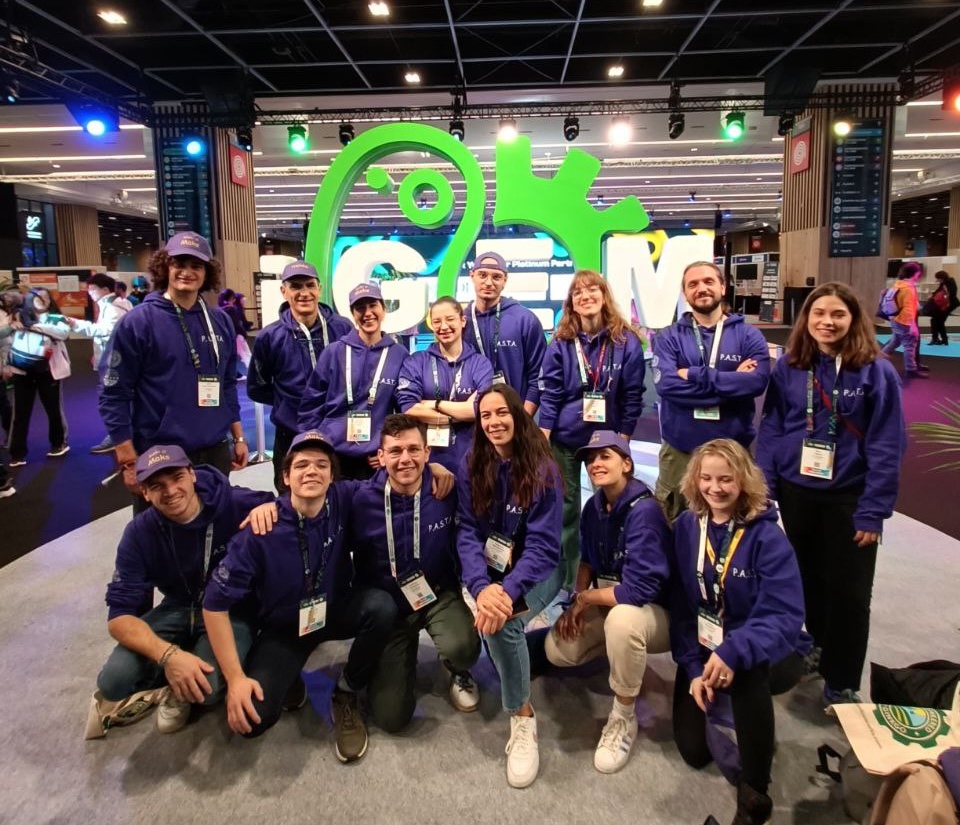Article posted on TGPadova
The Gold Medal was awarded to the P.A.S.T.A. project – Phage Assisted Silencing Tool against Antimicrobial resistance – by the Mutans team from the University of Padua, at the international Synthetic Biology competition (iGEM) held recently in Paris. The project also received a nomination for “Best Therapeutics Project”, reaching the final selection of the top projects in this category.
The Mutans team consisted of 11 students from four degree programs (Biotechnology, Biomedical Engineering, Biology and Medicine and Surgery), a doctoral student tutor from the Department of Molecular Medicine, and four professors from the departments of Information Engineering, Molecular Medicine, and Biology. The only Italian team present at the competition, coordinated by Professor Livio Trainotti in collaboration with Massimo Bellato, PhD and led by student Tommaso Varaschin, competed with 400 international teams represented by over 3500 participants.
The project was financially supported by the University of Padua through the 2021 Innovative Teaching and Innovative Student Teaching calls from the Department of Biology, as well as funds for the improvement of teaching in Information Engineering, Molecular Medicine, and private entities.
The significant event in Paris on synthetic biology, an avant-garde discipline bridging life sciences and engineering, rewards an idea developed both in theory and practice, useful for solving a global problem. The team, formed at the end of 2021, presented the P.A.S.T.A. project – Phage Assisted Silencing Tool against Antimicrobial resistance.
P.A.S.T.A. aimed to “circumvent” antibiotic resistance, a topic of great global interest, closely monitored in Italy as well, with 19,000 deaths in 2019, as evidenced by the ISS report. The underlying idea of the new therapeutic approach is the use of bacteriophages, bacterial viruses engineered to be safe and effective. Padua team’s project, beyond the Gold Medal, was selected among the “Best Therapeutic projects,” demonstrating how the university’s expertise and the quality of its students, who were experiencing their first international competition, enable them to achieve great results on an international level.
